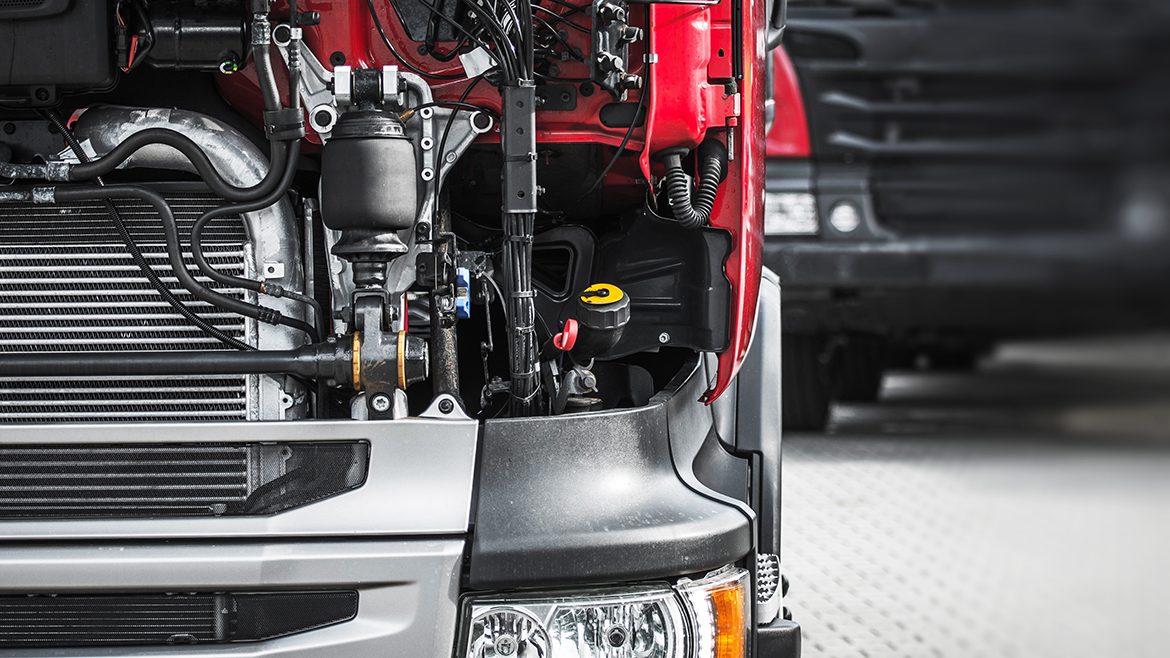Sep 9, 2021
Posted by Shubhamita Basu, PhD, North America Product Manager, Industrial Oils
This article highlights the key takeaways from our recent A Sustainable Approach to Product Development for Industrial Lubricants, part of our Lubrizol360 Webinar Series featuring Lubrizol experts discussing important industry trends.
Sustainability is one of the most popular topics surrounding product development today. The United Nations defines sustainable development as “development that meets the needs of the present without compromising the ability of future generations to meet their own needs.”
But sustainability can’t just be focused on global warming potential (GWP) or the end result of its use. Instead, sustainability must be measured over the entire life cycle of a product, from production to use to disposal. This webinar covered the importance of taking a full life cycle approach to industrial lubricant development and how products with low environmental impact and those formulated with performance polymers can improve the overall sustainability of hydraulic fluids, industrial gear oils and open gear lubricants.
Importance of Sustainability in the Current Environment
There is an ever-increasing consensus throughout the world that it is important to build a better and more inclusive future for both the people and the planet. That means dealing with ongoing issues like climate change and COVID-19, whose effects are being felt globally. International energy companies and original equipment manufacturers (OEMs) are increasingly committing to specific carbon reduction objectives. Carbon accounting and life cycle assessment (LCA) considerations are already being included in tenders, and noncompliance with sustainable practices could limit future business opportunities. The lubricant industry is also subject to these considerations.
Sustainability Drivers in the Lubricants Industry
Sustainability is a vital driver to the long-term health and growth of any organization. The opportunity to bring about long-term, global change is immense, but companies that are committed to sustainability must take a holistic approach to product development. That’s why undergoing a full LCA is so important to the process. An LCA is the factual analysis of a product’s entire life cycle from a sustainability standpoint. With an LCA, the environmental effects of a product or service are evaluated from cradle to grave. It prevents burden-shifting between different phases of a product’s life cycle and measures other categories that factor into sustainability while minimizing opportunities to focus too closely on one factor over another. In other words, LCA allows product developers to design products that have an improved overall environmental profile, and to help benchmark those improvements.
Defining the Terms
Two terms are critical to understanding what role LCAs will play in determining how sustainable products really are: footprint and handprint. Simply stated: Footprint is the effect that a person, company or activity has on the environment—for example, the amounts of natural resources that they use or harmful gases they produce. Handprint is the positive impact of products in use. Maximizing the handprint of products by providing solutions that meet and exceed performance and sustainability goals targeted by consumers should be the focus of all product and technical teams. Developing sustainable industrial lubricants can’t be done haphazardly. To achieve those broader goals, typically one of three broader approaches is used by researchers: Develop products with low environmental impact. Employ energy-efficient performance polymers. Create additive packages that can extend the oil drain interval. Improving a product’s handprint is critical, but not if it occurs at the expense of performance. Any sustainable lubricants must meet or exceed the performance standards as created by the industry and the OEMs.
Approaches to Designing Products with Low Environmental Impact
Organizations across all industries are striving hard to comply with the changing government regulations and consumer demand of products with lower environmental impact. In the lubricant industry, that has meant a shift away from more traditional lubricants to biolubricants which by far is the most significant category for this particular discussion. Biodegradable hydraulic fluids are the most prominent category of biolubricants. These are frequently used in equipment that might encounter sensitive areas like forests and waterways to prevent possible contamination. Environmentally Acceptable Lubricants (EALs) are the type of biodegradable hydraulic fluids that are most in demand because tests have shown that they have demonstrated biodegradability, nonbioaccumulative potential and minimal aquatic toxicity, all while being manufactured with biobased raw materials and meeting high technical standards. EALs are required to achieve high standards to earn the designation. The most sought-after EALs maintain the perfect balance of performance up to industry and OEM standards (ISO 15380, JCMAS HKB, Eaton and Denison) and environmental considerations (EU Ecolabel, VGP and USDA BioPreferred).
Use of Energy-Efficient Performance Polymers
Energy-efficient performance polymers can be used in hydraulic fluids, industrial gear oils (IGO) and open gear lubricants (OGL) to improve the efficiency profile of numerous industrial products. Efficiency improvement can be seen in terms of improved productivity, lower energy consumption or fuel usage (depending on the application) as well as decreased carbon dioxide emissions. Energy-efficient hydraulic fluid formulated with performance polymers has shown diesel fuel savings of up to 2.7% during a field trial using heavy-duty mobile equipment. In addition, during a field trial using a plastic injection molding machine, this formula allowed for an 8.5% reduction in electricity usage. For IGOs, when differentiated performance is required, it is a common practice to use synthetic IGOs which are usually formulated with polyalphaolefin (PAO) type base oil and thickeners. Unfortunately, such IGOs are often expensive. By using performance polymers combined with PAO base oils, the resulting lubricants can provide a less expensive synthetic IGO with improved temperature reduction properties. Additionally, synthetic IGOs that contain performance polymers may operate 17 °C cooler than mineral oil based IGOs and reduce power consumption by 16%. That performance means they are the most sustainable option to ensure that equipment runs at peak performance over the long haul and reduce the number of times equipment must be replaced. Likewise, synthetic OGLs containing performance polymers have been shown to run 21 °C cooler and provide 20% energy savings over traditional mineral oil based OGLs, and a real-world trial in a sugar mill further confirmed that result.
Our View
As lubricant manufacturers move forward designing products, it is important that they take the entire life cycle into account. When designing products, the sustainability of the entire process should be considered. As more companies focus on improving the sustainability of their operations, sustainable production of industrial lubricants will be expected. Companies that deliver product portfolios with sustainable options will have significant advantages over those that do not. A continued focus on building technologies that have a positive impact on the sustainability of products, like lubricants with low environmental impact or the use of performance polymers, will be essential to manufacturers’ success as the industry continues to evolve. For more information about the importance of incorporating sustainability in the development of industrial lubricants, contact your Lubrizol representative today.









